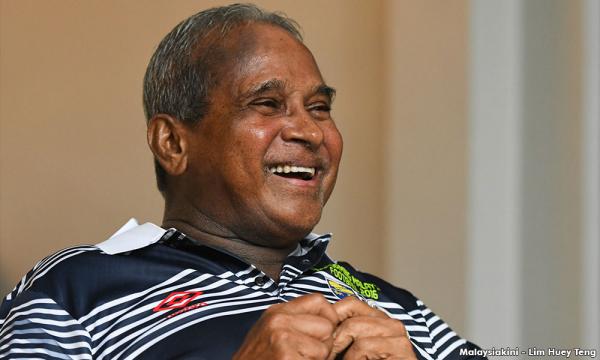MALAYSIANSKINI | At the age of 82, Peter Velappan's face still lights up when he talks about football.
But who can blame him, after devoting his whole career to the sport, which saw him help organise 12 Fifa World Cups and oversee football tournaments in over 230 countries?
Trophies and medals of his heyday are scattered all around his home office, dating from as early as 1950, together with certificates, recognition letters, and pictures of himself with football stars like Diego Armando Maradona.
“Sometimes, he just hides in here when he doesn’t want to talk to the rest of us,” his wife jokes as she walks past.
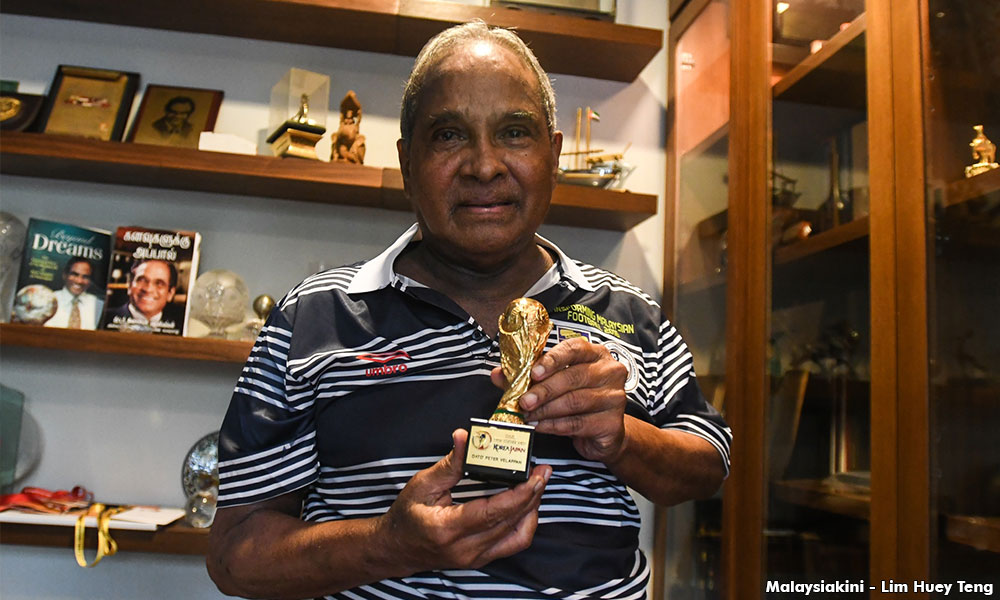
Velappan was also the team manager for the Malaysian football team that beat South Korea to qualify for the 1972 Summer Olympics in Munich, Germany.
"When the German Football Association called and told me Malaysia and Germany would play in the opening match (of the Olympics), I couldn’t believe it.
“So I called (then Selangor Chief Minister) Harun Idris and said, ‘Imagine Germany playing Malaysia. The Olympics will be played across the whole world!
“He said, “Are you mad?” And then we played,” he recounted the story with glee during an interview with Malaysiakini at his house in Petaling Jaya.
Growing up, Velappan was always fascinated by the sport and would spend hours at a time kicking a ball at an estate field near his house in Siliau, Negeri Sembilan.
He represented his home state in relay events and other games on a number of occasions too.
After pursuing a degree in education in Canada, Velappan served under the Youth, Culture, and Sports Ministry for 17 years.
It was during this time that Velappan met and befriended Tunku Abdul Rahman, Malaysia's first prime minister.
“I first met Tunku in 1958 when I was Football Association of Malaysia (FAM) assistant secretary,” he says, adding that Tunku was leading the association at the time.
“Of course, before physically meeting him we had seen him in the papers.
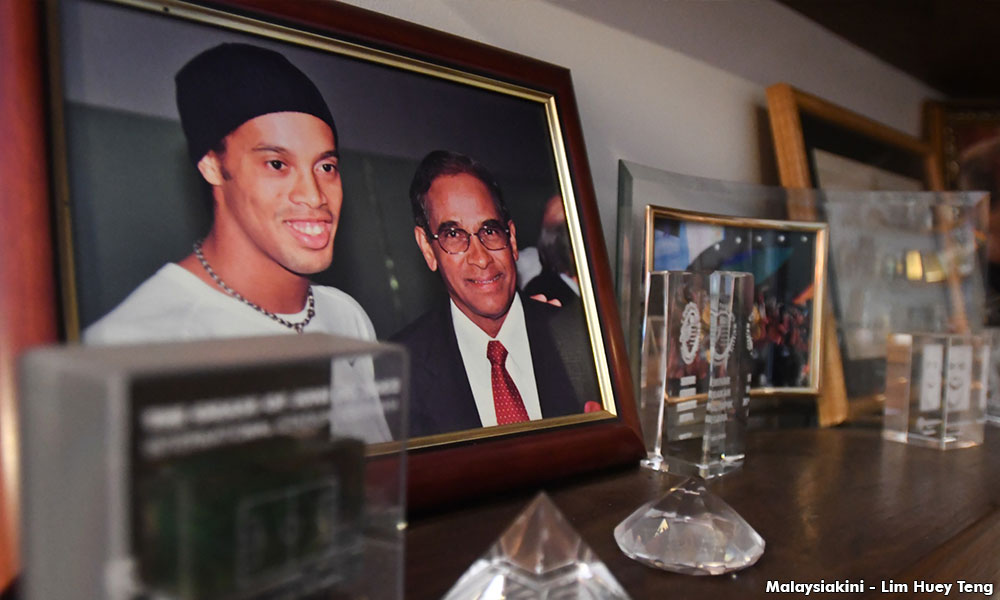
“He was a very fatherly figure, very humble and polite too. This impressed me a lot. He once told me, "Please help Kwok Kin Keng, FAM general-secretary, manage our Malayan football,” he said.
Velappan has contributed his recollections of Tunku to a new book titled “Dialog: Thoughts on Tunku’s Timeless Thinking”, a hardback, 270-page compilation of anecdotes and essays by Malaysians about the country’s first prime minister.
However, when asked about the state of Malaysian football today, Peter’s face fell.
Having built a career in football, and witnessed the country’s history from pre-independence until today, Velappan shares his story in his own words.
THERE IS NO SADDER PERSON THAN I WHEN TALKING ABOUT MALAYSIAN FOOTBALL TODAY. Football is my life. My whole life, football was the game. It was progressing so well.
I deeply believe that in order for this country to remain united racially, playing football would best serve this mission. There is no better sport to really unite Malaysians.
THE FAM PRESIDENT’S CALL TO RID SPORTS OF POLITICS IS FUTILE. I am not optimistic about Johor Crown Prince Tunku Sultan Ibrahim’s efforts. At every level, politicians are involved.
They are all Umno fellows too. We have no Chinese or Indians anymore, so I can’t imagine in any way he can dismantle the whole thing. Tunku Ismail’s tremendous challenge is to build the team to be truly 1Malaysia, and represented by all races.
Today when you look at the Malaysian national team, the Chinese don’t play anymore - they swim or do badminton instead. Very few Indians too.
So I can't imagine how he can dismantle the wheel unless he dismantles the whole system.
THE PROBLEM WITH OUR FOOTBALL SCENE TODAY IS THAT WE BUILD ROOFS AND NOT FOUNDATIONS. When you want to build a house, you would start with its foundation. Youth development through clubs should be there, but we have no such clubs yet.
Instead, we build the roof first, the national team, and what happens when it collapses?
I can tell you, Malaysia has very good talents but we simply don't have the structure or organisational leadership to lead them.
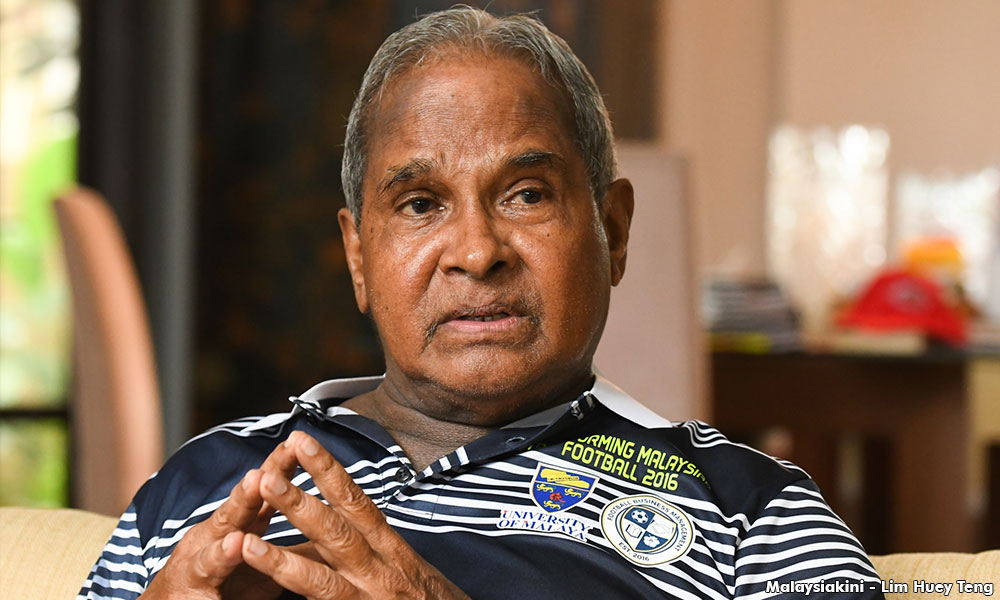
In fact, I just spoke to the president of the Royal Selangor Club. I told him, if you get things right in five years, we should be back to where we were as a top country in Asia.
As busy as Tunku Abdul Rahman was, he never failed to convene the monthly Asian Football Confederation (AFC) football meetings. He was always very thoughtful of the future of football.
Tunku was very well-known for contributing to the development of football in Asia. In addition to the Pestabola Merdeka (Independence Football Festival), which saw international football teams gathering in Malaysia for 39 years since 1957, Tunku organised under-16 and under-20 football clubs, leadership training, and other educational-style efforts.
MY BIGGEST CONCERN WAS WHEN TUNKU RETIRED. He didn't want to stay in the official residence. He went back to Penang. I used to write to him twice a month, in the evenings. He was all by himself with one Indian clerk.
His wife was not well. Nobody went to see him. The government just left him alone.
I got some of my friends in Penang to go meet up with him, walk him around the garden. He used to say, I have no friends.
There is a quote in my essay in “Dialog” that I feel still rings true: “He never forgot his friends, although some, towards the end, forgot him”. He died a very tragic and sad death.
IT WAS HUMANITY THAT REALLY SET HIM OUT. He recognised every human being.
Most of the people he met were not really well-off. He recognised that a huge majority of our population at the time was living well below their means.
Once, Tunku had wanted to see the progress of the construction of the Merdeka Stadium. He went with a group including the media.
One beggar came to him and said, "I have not eaten for one week,". Tunku pulled out his purse and handed him 10 dollars. Then the beggar said, "Aiyo, I no shirt to wear". Tunku took off his jacket and took off his shirt. The guy panicked and ran. He didn't even take the shirt!
On another occasion, I expressed to Tunku my interest in pursuing a course on exercise physiology with McGill University in Montreal, Canada. The following week, the Canadian ambassador called me for lunch.
He told me, "Let me have your curriculum vitae and documentation." Within a short time, he offered me a scholarship for 18 months to complete my degree course. Can you imagine how human he is? He took such an active interest in your schedule.
Talk to the people who worked in his residency, they just worshipped him. Whenever he travelled overseas, he would buy these little gifts for us, some watches, ties, cufflinks. When we would go overseas and bring him back something, he would scold us, and ask us, why do you waste your money?
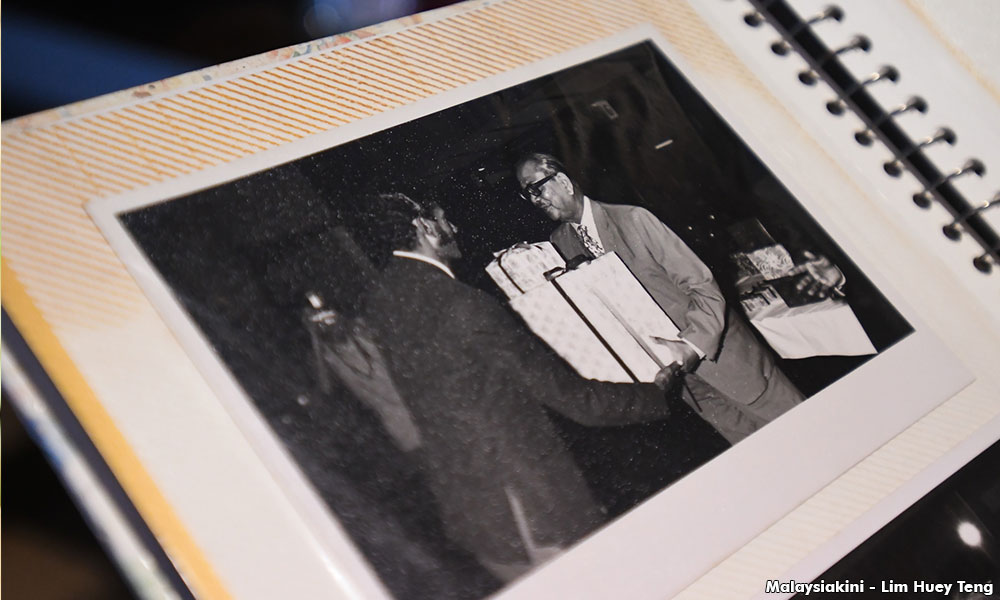
TUNKU WAS GOD’S GIFT TO MALAYA. Without him as the first prime minister, we would not be where we are today. He was respected, unlike now by the current generation.
He was always very thoughtful of football’s future here in Malaysia. After retiring from the FAM for political reasons, he asked me to take over.
We don't teach our children in schools about the heroes of Malaysia. Save for reading books, not many people knew about Tunku. This is very sad. Regretfully, he is the least-recognised father of this country.
In my job, I've been to about 230 countries, and I can say that this country is God's gift to the world. No other country has our blessings. We have natural and human resources. Combined, these produce what we have today.
In spite of this, politicians don't appreciate this. They talk about race and religion - not necessary. Everyone contributed to the development and progress of our country and we have prospered because of it.
From Merdeka Day to Malaysia Day, Malaysianskini will be featuring personalities known to Tunku, as well as their memories about him. Their detailed recollections are featured in the book "Dialog: Thoughts on Tunku’s Timeless Thinking".
MALAYSIANSKINI is a series on Malaysians you should know.
Previously featured:
War has no victors, says last surviving WWII vet
The one-man Malay literature archive
The last of generations of storytellers

